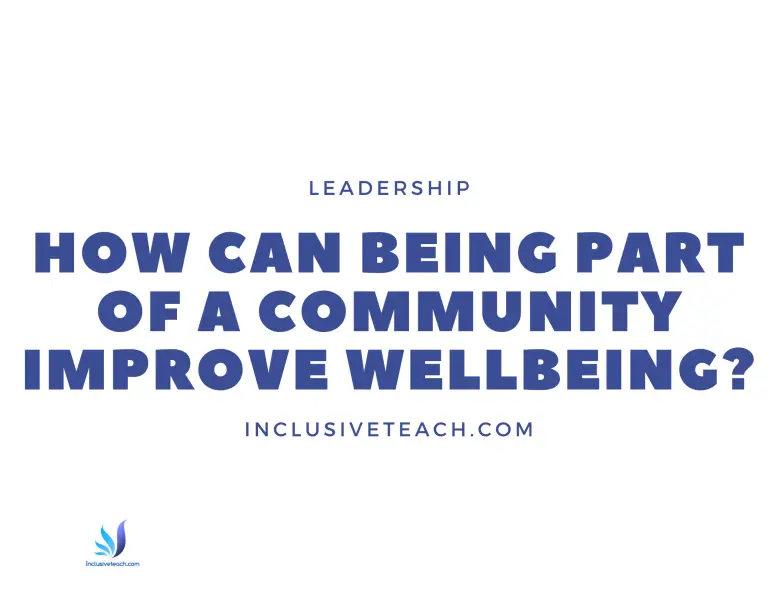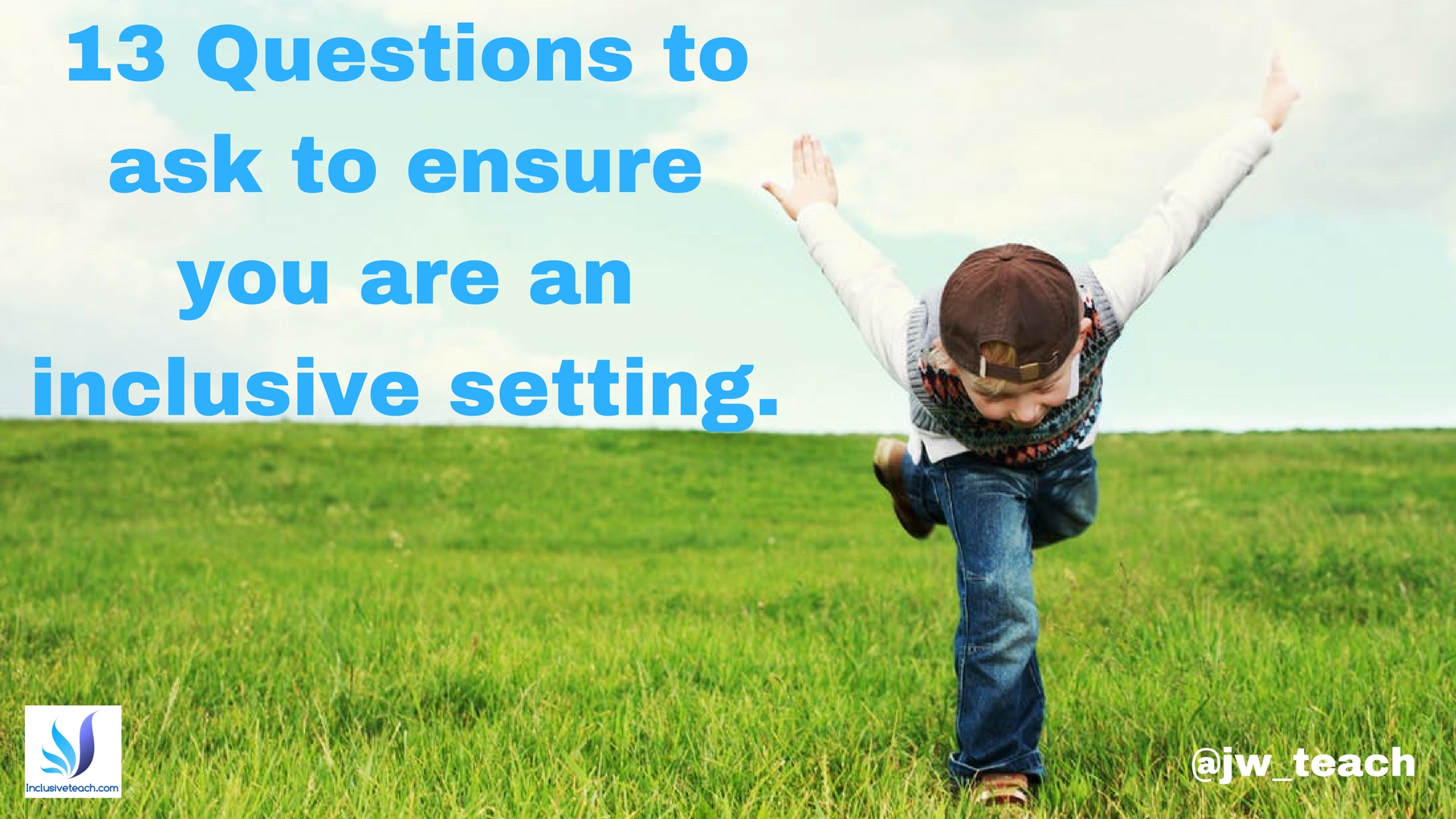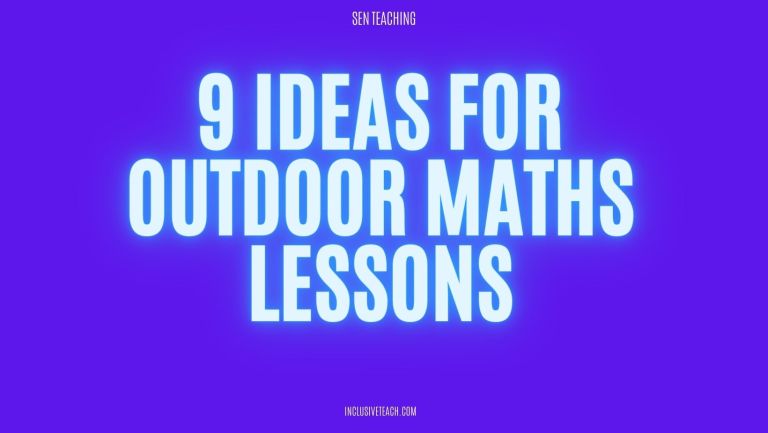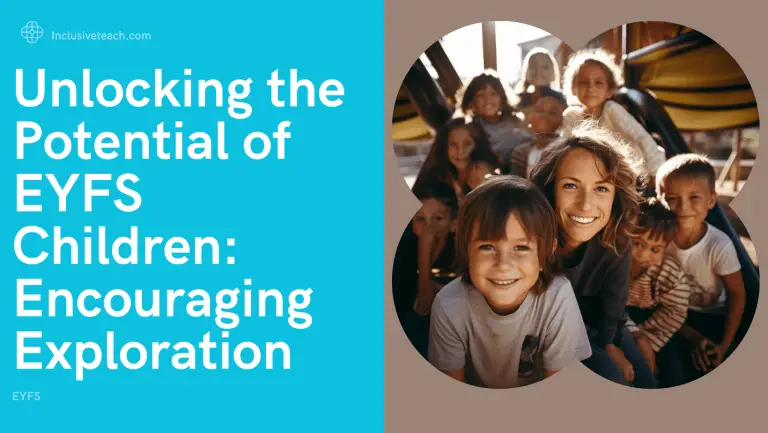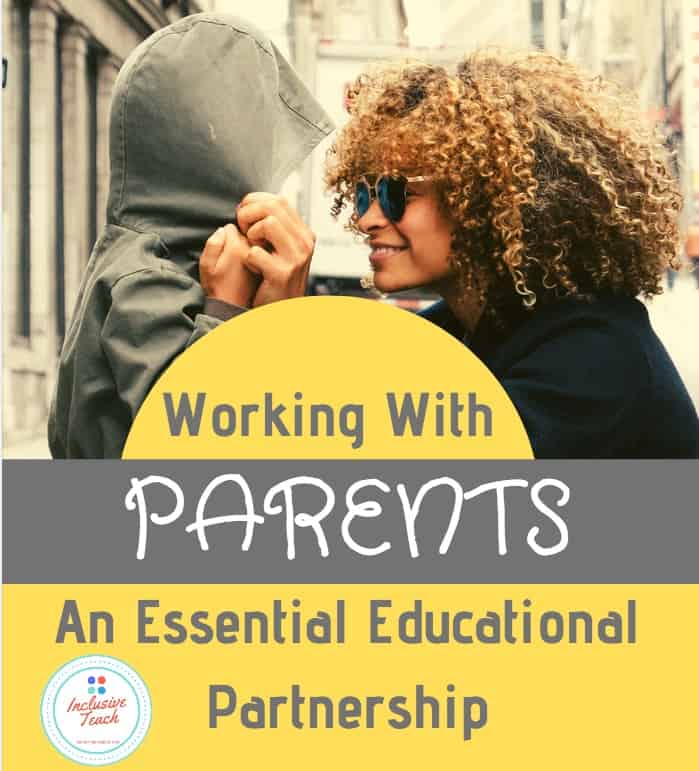14 Brilliant Indoor & Outdoor Group Games for Children
Engaging toddlers in group games is not only fun, but it also promotes social interaction, cooperation, and physical activity. Introducing toddlers to indoor and outdoor games is a wonderful way for the children to experience genuine joy in learning. These games encourage children to develop essential skills while having loads of fun. Below, you will find a compilation of 14 brilliant group games suitable for children and the Early Years Foundation Stage (EYFS):
Indoor Group Games
- Musical Chairs: Arrange chairs in a circle, one less than the number of children. Play music and have the children walk around the chairs. When the music stops, they must find a chair to sit on. The child left without a chair is out, and a chair is removed for the next round.
- Simon Says: Designate one child as “Simon” who gives commands starting with “Simon says.” For example, “Simon says, touch your nose.” The other children must follow the instructions only when “Simon says” is included. Those who follow an instruction without “Simon says” are out.
- Duck, Duck, Goose: Have the children sit in a circle. One child walks around the circle, tapping each child’s head, saying “duck.” They choose one child to be the “goose” and race back to their spot. The goose then chases the other child around the circle, trying to tag them before they reach the goose’s spot.
- Freeze Dance: Play music and have the children dance, but when the music stops, they must freeze in their current position. Anyone caught moving after the music stops is out. Start the music again and continue until one dancer remains.
- Bean Bag Toss: Set up buckets or hoops at different distances and assign point values to each. Have the children take turns throwing bean bags into the targets. The child with the highest score wins. To adapt for SEN learners you can use a piece of guttering to roll the ball into different buckets.
- Obstacle Course: Create an obstacle course with pillows to jump over, hula hoops to crawl through, and cushions to balance on. Time each child as they navigate the course, and the fastest time wins.
- Balloon Volleyball: Divide the children into two teams and give each team a balloon. They must work together to keep the balloon in the air by hitting it back and forth over a string or tape “net.”
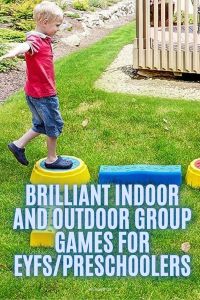
Outdoor Group Games
- Sack Race: Provide each child with a sack or pillowcase to place their legs in. Mark a start and finish line, and have the children hop from start to finish. The first to cross the finish line wins.
- Egg and Spoon Race: Give each child a spoon and a hard-boiled egg or a ping pong ball. They must balance the egg or ball on the spoon while racing from the start to the finish line. If the egg or ball falls, they must return to the start.
- Three-Legged Race: Pair up the children and tie one leg of each pair together. Mark a start and finish line, and have them race while coordinating their movements.
- Duck Pond: Fill a small pool with water and place rubber ducks inside. Write numbers on the bottom of each duck. The children take turns picking a duck and finding the corresponding number on a prize board to claim their prize.
- Nature Scavenger Hunt: Create a list of items found in nature, such as leaves, rocks, or flowers. Give each child a bag and have them search for the items on the list. The first to find all the items wins.
- Sidewalk Chalk Obstacle Course: Use colourful chalk to create a fun and challenging obstacle course on the sidewalk or driveway. Include activities like jumping, hopping, and balancing. The children can take turns completing the course.
- Water Balloon Toss: Pair up the children and give each pair a water balloon. They stand facing each other, gradually stepping back after each successful catch. The pair that can toss their water balloon the farthest without it breaking wins.
Remember to adjust the games to suit the abilities and interests of the preschoolers. Safety should always be a priority, especially when playing outdoor games. Enjoy these group games and have a blast with your preschoolers!
The Educational Benefits of Group Games For Pre-Schoolers
Group games are a fantastic educational tool for preschoolers, as they offer many benefits that contribute to their overall development. From enhancing social-emotional skills to stimulating cognitive abilities, playing group games can profoundly impact preschoolers’ growth and learning. In this article, we will explore the key educational benefits of playing group games with preschoolers in detail.
- Social-Emotional Development: Group games provide an excellent platform for preschoolers to develop important social skills. By playing games that require sharing, taking turns, cooperating, and following rules, children learn the value of teamwork, empathy, and respect for others. These experiences help them build positive relationships, develop self-regulation skills, and navigate social interactions effectively.
- Problem Solving: Many group games involve strategizing, critical thinking, and problem-solving. Preschoolers are challenged to think ahead, make decisions, and adapt their strategies based on the changing circumstances of the game. These experiences enhance their cognitive abilities, foster creativity, and develop their problem-solving skills, which are crucial for their future academic and personal success.
- Communication: Playing group games requires effective communication. Preschoolers learn to listen attentively, express their ideas clearly, and provide feedback to their teammates. They practice verbal and non-verbal communication skills, such as using words, gestures, and body language, to convey their thoughts and understand others. This enhances their language development, vocabulary, and overall communication skills.
- Physical Skills: Active group games encourage preschoolers to engage in physical activities, promoting their physical development. These games involve movements such as running, jumping, balancing, and throwing, which help improve coordination, motor skills, strength, and balance. Regular participation in physical games also contributes to the development of a healthy lifestyle and instils the importance of physical activity from an early age.
- Creativity: Some group games allow for improvisation and creative rule interpretation. This fosters imagination and encourages preschoolers to think outside the box. By experimenting with different approaches and exploring new possibilities within the game, children develop their creative thinking skills and learn to embrace their own unique ideas.
- Numeracy: Many group games naturally incorporate numeracy concepts. Through counting, cardinality, sequencing, and recognizing patterns, preschoolers develop an intuitive understanding of basic mathematical concepts. These experiences lay the foundation for future math learning and help them develop a positive attitude towards numbers and problem-solving.
- Risk-Taking: Group games provide a supportive environment for preschoolers to take risks and step out of their comfort zones. With encouragement from their peers and caregivers, children are more willing to attempt more challenging roles within the game. This nurtures their confidence, resilience, and willingness to explore new possibilities, both within the game and in other areas of their lives.
- Attention: Playing group games requires focused participation, which helps improve preschoolers’ attention span, concentration, and memory abilities. By engaging in the game and following the rules, children learn to stay focused on a task for an extended period. This skill is transferable to other areas of their lives, such as classroom activities and learning experiences.
- Cultural Exposure: Group games provide an opportunity for preschoolers to explore and appreciate different cultures. Traditional games from various backgrounds can be introduced, allowing children to learn about diversity in a positive and engaging way. This exposure fosters cultural sensitivity, respect for others’ traditions, and broadens their worldview.
- Joy of Play: Perhaps the most important benefit of playing group games with preschoolers is the sheer joy and fun they experience. Play is an essential part of childhood, and engaging in enjoyable interactions promotes a love of learning. Group games create an engaging social experience that not only helps children develop various skills but also creates lasting memories and positive associations with learning.
Adapting games for students with special educational needs:
As teachers we need to make sure our planned learning activities are fully inclusive. Here are some suggestions we can do proactively to make sure the games we play within class follow the principles of inclusion.
- Visual prompts are very helpful for many children: Things like photo cue cards, task schedules, yes/no switches can help students understand expectations and rules independently.
- Communication is key: Meet with parents and therapists to learn each student’s needs, triggers and successful strategies. Collaborate on adaptations that play to individual strengths.
- Consider sensory processing: Look for spots where the introduction of fidgets, weighted items, auditory aids etc. could make games calming and achievable for those with sensory processing differences.
- Practice transitions: Incorporate clear signals into natural breaks for processing changes of activity or turn-taking. Use timers visually or with vibration.
- Use strength-based groupings: Match peer buddies who are patient and able to offer support both physically and with demonstration. Opt for cooperative vs. competitive structures.
- Vary participation levels: Have options where all students can join in at their level whether it means observing, imitating a movement or achieving the full activity expectation.
- Adapt with feedback: Check frequently that adaptations allow full inclusion. Adjust on the fly based on student engagement, behaviour and body language cues rather than assumptions.
Incorporating group games into preschoolers’ educational experiences offers a multitude of benefits. From promoting social-emotional development and problem-solving skills to enhancing physical abilities and nurturing creativity, group games provide a well-rounded approach to early childhood education.

